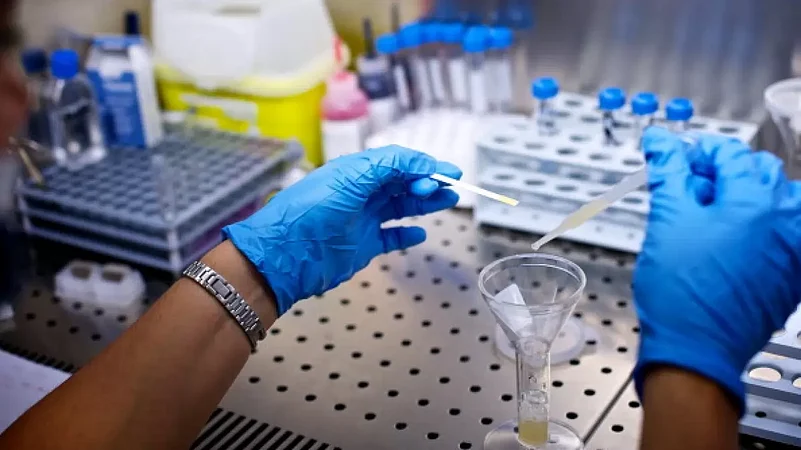Thirty-eight-year-old Moushmi has been trying to conceive for the past decade. She has been undergoing IVF treatment, without much success, for nearly eight years of that decade. Though an enthusiastic participant in the beginning, as the cycles did not bear the expected results, she started getting irritable and withdrawn. Her confidence levels ebbed and she refused to socialize even with the neighbours who lived on the floor her flat is located on. Withdrawn, morose, irritable or emotional, Moushmi has been undergoing psychiatric counselling after her in-laws refused to “put up with her tantrums”. Under tremendous pressure to conceive, she tried to jump off the balcony of her sixth-floor residence on a quiet avenue in Mumbai. A scrapping sound had alerted the housemaid of her maternal home, who pulled her to the ground in the nick of time.
Since that fateful near mishap two months ago, all windows and balconies of the flat have been covered with sturdy pigeon nets. “It will take a long time for her to recover mentally and emotionally. Infertility can have a debilitating effect on mental health. She may even get worse. More than a doctor she needs someone to talk to and unburden herself without the other person being judgmental,” says Moushmi’s counsellor. “She has her good and bad days. But off-lately, the bad days outnumber the good days,” says the doctor.
According to IVF specialist Dr Rakesh Dhoipode, feelings of depression, anxiety, jealousy, grief, and irritability often make the patients feel isolated. “These feelings are also the result of the medications being given during the treatment. The patient must see an in-house counsellor attached to the doctor or hospital where the patient is receiving treatment from the very moment the treatment begins. This will help and the success of the cycles may be better,” says Dhoipode.
After several studies have pointed out the direct connection between IVF and the mental health of the women undergoing such treatments, relaxation techniques, mindfulness techniques, yoga, guided imagery and expressive writing are being recommended to the patients. “Despite all these, there is a higher percentage of women who suffer from mental health issues during the IVF treatments,” says Dr Nandita Menon, IVF interventionist. In recent years, the number of couples seeking treatment for infertility problems has increased due to various factors including postponing pregnancy, overuse of oral contraceptives etc. Researchers have been actively looking into the close connection between the prolonged use of intrusive infertility treatments and the psychological impact of infertility.
“Both men and women feel inadequate and experience a sense of loss of identity,” says Dr Pradeep Chandra. “These couples come to the IVF clinics with so much hope. The women want to get pregnant in the first cycle itself. We counsel them before the start of the procedure. However, if pregnancy gets delayed or there is a miscarriage, the mental health starts getting shaky,” says Chandra. A variety of studies have found that depression and the possibility of mental ailments in infertile couples is much higher. “I see a lot of patients and have realized that mental health issues are on the rise and need to be aggressively addressed. If my patients do not take the counselling seriously, I tell them I will stop the treatment. I have made this mandatory after I started noticing it in patients,” says Chandra.
The process of assisted reproduction is associated with increased levels of anxiety, depression and stress, say other medical practitioners. Studies have found that many women who come in for IVF treatments are depressed with higher levels of stress, anxiety and the feeling of low self-esteem. A significant number of dropouts from assisted reproductive treatments are often due to psychological factors, points out Dhoipode.
“There must be support groups and group psychotherapy for the patients as it helps reduce the psychological factors,” says Dr Ashok Anand, a former head of the department of the state-run Sir J J Group of Hospitals.






















